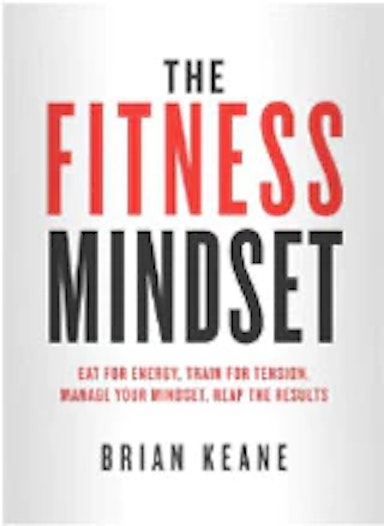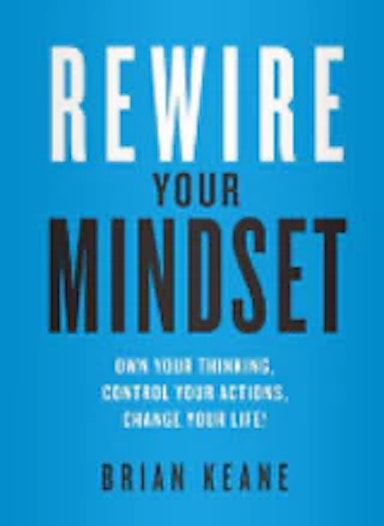Eat more fat, lose more fat: the best of both worlds
- By Brian Keane
Have you ever heard of the ‘Mediterranean Paradox’ – how people living near the Mediterranean eat more fat but generally have leaner bodies, better health and live longer? An entire olive oil ad campaign was built around this principle not too long ago. Have you ever asked yourself why? Why do these people have leaner physiques, seem to age more slowly and live longer lives? The answer is they eat more fat than us.
Fatty acids have a profound effect on muscle gain, fat loss and overall health. Certain fatty acids can generate a hormone like effect on the body, regulating hunger, fat loss and muscle building hormones. This is the primary reason why some modern day diets can completely ruin your metabolism and make you fat in the process. Traditional breakfast cereals and cereal bars for example are so highly processed, high in sugar and void of absorbable nutrients that they leave you fighting a losing hormonal and blood sugar battle for the rest of the day. The answer, eat more fat.
SATURATED FAT, THE HERO OR THE VILLIAN?
Every good movie has a hero and villain and our ideas about what is good or bad change according to the times in which we live and the individual circumstances of our lives.
In the early 90’s, I was a big WWF wrestling fan and I remember the good guys were the ‘ones that did the right things’; they saved the other good guys and played by the rules. The bad guys would lie, cheat and steal to win. However, something very funny happened around the year 2000. The roles flipped. The heroes or ‘good guys’ were now lying, cheating and stealing and were seen as super cool. The guys who played by the rules and told you to eat your vitamins and say your prayers were booed by the crowd and became the new bad guys.
The roles had been completely reversed so what changed? Society changed. This is kind of what happened with saturated fat. It was the bad guy all through the 90’s and early 2000’s – it was the fat that gave us heart disease and cholesterol issues. So what changed? Its now 2016 and heart disease has never been higher. So making the switch to margarines and vegetable oils (note, these are not made from vegetables) didn’t work? So what does that tell us? I could write a whole book on why you should avoid margarines and vegetable oils (book number 2 perhaps?) but all I can say is, if you’ve been fooled into thinking its ‘healthy’ and will help you lose fat, you are not alone. I used margaraine and vegetable for nearly years before I understood the truth about fat.
DEFINE FAT?
When we talk about fat types – saturated, monounsaturated and polyunsaturated, we’re actually talking about fatty acids. Fatty acids are chains of carbon and hydrogen atoms attached to a carboxyl group (think of it like a hinge on your bike that keeps individual chains together). Every fat, whether plant or animal, is made up of those same raw materials.
In saturated fat, every link in the fatty acid chain is secured – its saturated. Monounsaturated fats have just one unsecured link (mono means one) and polyunsaturated fats have two or more unsecured links in their chains (poly means many). In truth, almost all the natural fats we eat are a blend of these three kinds of fat but whatever a fat is mostly made of, whether saturated, monounsaturated or polyunsaturated, is generally what we call it. We do the same with macronutrients, oats for example has a little fat and some protein but it primarily carbohydrates so we label it as a ‘carbohydrate’ food.
So how did we go from eating fat and cholesterol rich foods that healthy humans ate for hundreds and even thousands of years to avoiding these foods and replacing them with margarines and vegetable fats?
HOW RUMOURS GET STARTED!
Think about how rumours get started. One person says something to another who repeats it to another and soon the message takes on a life of its own until we start to believe it ourselves.
Fear of cholesterol and fat springs in large part from our fear of heart disease. The two concepts have grown together like peas in a pod. The heart disease epidemic is relatively new problem in human history and according the author of ‘Eat the Yolks’ Liz Wolfe “the first recorded heart attack was in 1912 and by 1930 the number of heart attacks had reached 3,000 and by 1960, there were over 500,000 recorded from heart attacks”.
People were terrified and needed an explanation. And a bad guy. In steps saturated fat. The western cultural panic led to the development of two ideas that became interlinked; saturated fat is bad and saturated fat raises cholesterol and gives you a heart attack. This is where margarines and vegetable oil came in to save the day.
According to Chris Masterjob, an expert in nutrition science, randomised, controlled trials have show that polyunsaturated fats cannot reduce heart disease. In fact, no study on replacing animal fat (saturated fat) with plant based polyunsaturated fat has shown to reduce in mortality. More interestingly, Masterjob has stated that these studies “showed an increased risk of cancer after five years and possible increase in heart disease risk”
So are these heart healthy ‘vegetable oils’ actually bad for us? Ill let you make your own decision on that but if fat loss or muscle building is your goal, these foods will definitely not support you in that sense (see below). Its also worth noting that the ‘vegetable oils’ are made up of corn, soya and canola. Corn is a grain, not a vegetable. Soybeans are legumes, not vegetables. Canola is derived from a seed, not a vegetable.
SATURATED FAT CAN HELP YOU LOSE WEIGHT!
Saturated fat was demonized in the first place because we thought it raised cholesterol and we linked high cholesterol to heart disease. Keep in mind that the idea that saturated fat raises cholesterol is a myth (when consumed from quality sources). There is a big difference in nutritional absorption from 100g of grass fed beef to a hormone pumped and grain fed beef. Similar, the orange egg yolk from free-range eggs is considerably more nutritious and with improved hormone balancing affects (which can speed up fat loss and muscle building) than a yellow coloured egg from a factory chicken.
Considering that margarine is generally a blend of crops oils and usually include additives like emulsifiers; and considering butter from pastured cows actually contains fat burning ingredients like Conjugated linoleic acid (CLA which is present in most fat burning supplements), its probably better to stick to the real thing. Kerry gold Irish butter for example is from pastured cows.
The key is to make sure you are not eating too much as it is calorie dense (i.e. you don’t need to eat a lot to get a lot of calories) but factoring it in to you nutritional plan can massively support hormones, make you feel more satied and can actually speed up fat loss in conjunction with the right training program and overall nutritional plan.
BUT WHAT ABOUT CALOIRES!
We have become so obsessed with calories that we’ve forgotten what’s supposed to come with our calories: nutrients!
The truth is, having an idea of calorie consumptions is important for your fitness goals. If you want to lose weight and your calorie maintaince (the calories you need to eat the stay the same weight) is 2,000, and you eat 6,000 every day, you’re probably not going to lose weight to quickly.
Fat have more calories per gram (9kcal) than either carbs or protein (both 4kcal) but the reality is 500kcals from fat is going to absorb much differently to 500kcals from carbohydrates. Fat is so satiating (it will leave you feeling fuller for longer) and including good quality fats that balances hormones levels can be the key the losing body fat, building more muscle and give you so much more energy though the day.
TAKE HOME MESSAGE: EAT FAT, LOSE FAT!
The take home message is pretty simple: cut margarines (fake butter) vegetable oils (coconut oil is a great alternative) and eat real food. Our bodies and digestive systems are designed to eat food as near to its natural state as possible (not low fat versions) so eat properly raised animals and minimally processed animal products as well as wild seafood and don’t fear the fat that come with them. This includes: free range eggs (the whole egg, the yolk is the most nutritious part), grass fed beef, lamb or pork and pastured butter. If you ever feel like ‘oh I can’t eat fat’, remember CLA (if you have ever bought a fat burner, is probably one of the ingredients) is naturally occurring in these foods. Eat fat, lose fat. I hope this helps and sorry if you just did your food shop today 🙂


